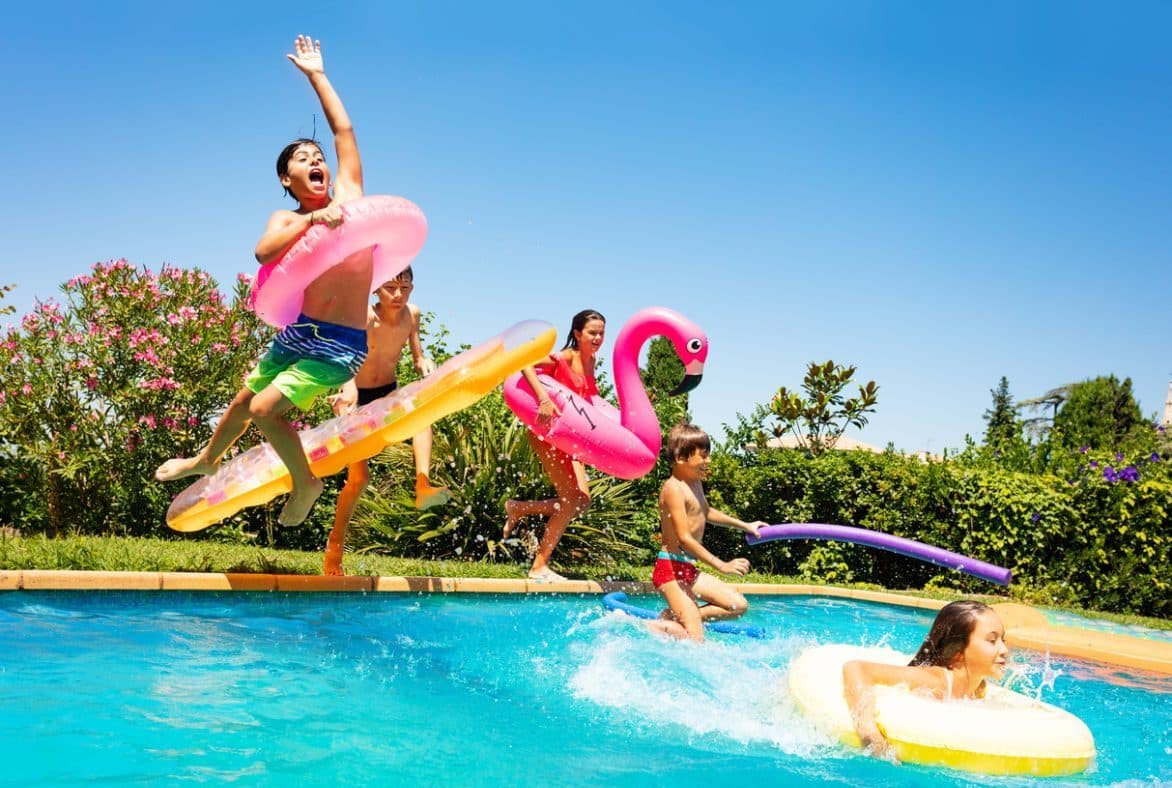In Birmingham, AL, summer temperatures can average 90 degrees and higher. In order to beat the scorching summer heat, many of us buckle up the kids, grab the sunscreen, and visit the closest beach, pool, or lake. As your kiddos splash and play, you’ve probably learned many common water safety tips to protect them, like making sure they have on floaties (if needed) and slathering them in sunscreen every few hours.
However, a danger may have been left out of your parent safety tips—called secondary drowning. At UAB Medical West, we’re here to keep you and your kids safe this summer and beyond. Our excerpts discuss everything you need to know about secondary drowning, including the signs to look out for and when it’s time to seek medical care.
What Is Secondary Drowning?
Secondary drowning can occur when water gets into the lungs after a near-drowning event, but it isn’t always immediately noticeable. In fact, it can occur up to 48 hours after such an incident. A build of fluid in the lungs can irritate the lung lining and cause a build-up of fluid, called pulmonary edema. If left untreated, secondary drowning can be life-threatening.
While this information may sound bleak, there is some good news. Secondary drowning only accounts for about 5% of drowning cases in children. However, it’s always better to be safe than sorry when it comes to your child’s safety during swim season!
Signs of Secondary Drowning
Secondary drowning can be sneaky because it can occur long after the water has been ingested. And, the near-drowning doesn’t have to be as drastic as you may imagine. Even if your child is underwater for just a few seconds and inhales water, they may be at risk for secondary drowning. Typically, secondary drowning can occur within one to 24 hours of the incident, but it can occur up to 48 hours after in some cases.
Similar to how you would closely observe a child after a concussion or other accident, we recommend watching for any signs of secondary drowning, including:
- Lethargy
- Fever
- Difficulty breathing
- Coughing
If you notice anything unusual, don’t hesitate to bring your child to the nearest emergency clinic to rule out secondary drowning and diagnose and treat an illness (if any). At UAB Medical West, we will never turn you and your child away. If something just doesn’t seem right, whether after the pool or after inside play, we’re here for you and your child and will always listen to any of your concerns.
Diagnosis of Secondary Drowning
If your provider suspects your child has secondary drowning, there are a few ways to diagnose this condition. First, the doctor will listen to your child’s lungs, looking for abnormal breathing or an elevated heart rate. Additionally, a doctor can test your child’s blood oxygen level, which may be lower than usual if your child suffers from secondary drowning.
Treatment of Secondary Drowning
The treatment of secondary drowning depends on the severity of the case. If it’s mild, oxygen, antibiotics, and diuretics may be prescribed to reduce the fluid in the lungs. If your child has trouble breathing, ventilation may be necessary to reduce the stress on the lungs from the extra fluid.
Regardless of the severity of the case, the UAB Medical West team will be with you every step of the way. Our team of experts will always offer information about diagnosis and treatment, so you’re never in the dark about your child’s condition.
How Can I Prevent Secondary Drowning?
While it’s hard to prevent accidents, there are some things you can do to increase your child’s water safety and lower the chances of any drownings or other medical emergencies.
At UAB Medical West, we always recommend the following:
- Using lifejackets for children who can’t swim, not just floaties
- Always supervise your child when they’re swimming
- Ensure all pool equipment, like pool covers, is in working order & out of reach when not in use
- Never let your child swim unaccompanied (in bodies of water or bathtubs)
- Fence in your at-home swimming pool to avoid a child accidentally getting in
- Close (and lock, if necessary) toilet lids
- Learn CPR (cardiopulmonary resuscitation)
Your proactive care as a parent makes you and your family better equipped for all kinds of summer fun. Make an appointment at UAB Medical West for further preventative care plans.
Emergency Care When You Need It Most
When faced with Alabama’s sticky, unbearable heat, it’s only natural that you and your family hit the water. We get it! Us too. However, we encourage you to pay extra special attention to your kiddos as they splash, play, and frolic in the pool, ocean, or lake this summer. With this information, we hope you and your family stay safe this summer and beyond!
And, if the unthinkable happens, we’re here to help. For any medical emergencies, like if your child is having trouble breathing, call 911. You can visit our team at our freestanding emergency center or visit medicalwesthospital.org for more information.
Need Summertime Medical Attention? Call UAB Medical West Today!
Proudly serving Birmingham, AL & surrounding areas, we’re here when you and your family need it most. If you suspect your child is suffering from secondary drowning, don’t hesitate to seek medical care at our emergency clinic. For medical emergencies, call 911. Visit medicalwesthospital.org for more information about UAB Medical West’s freestanding emergency department.
